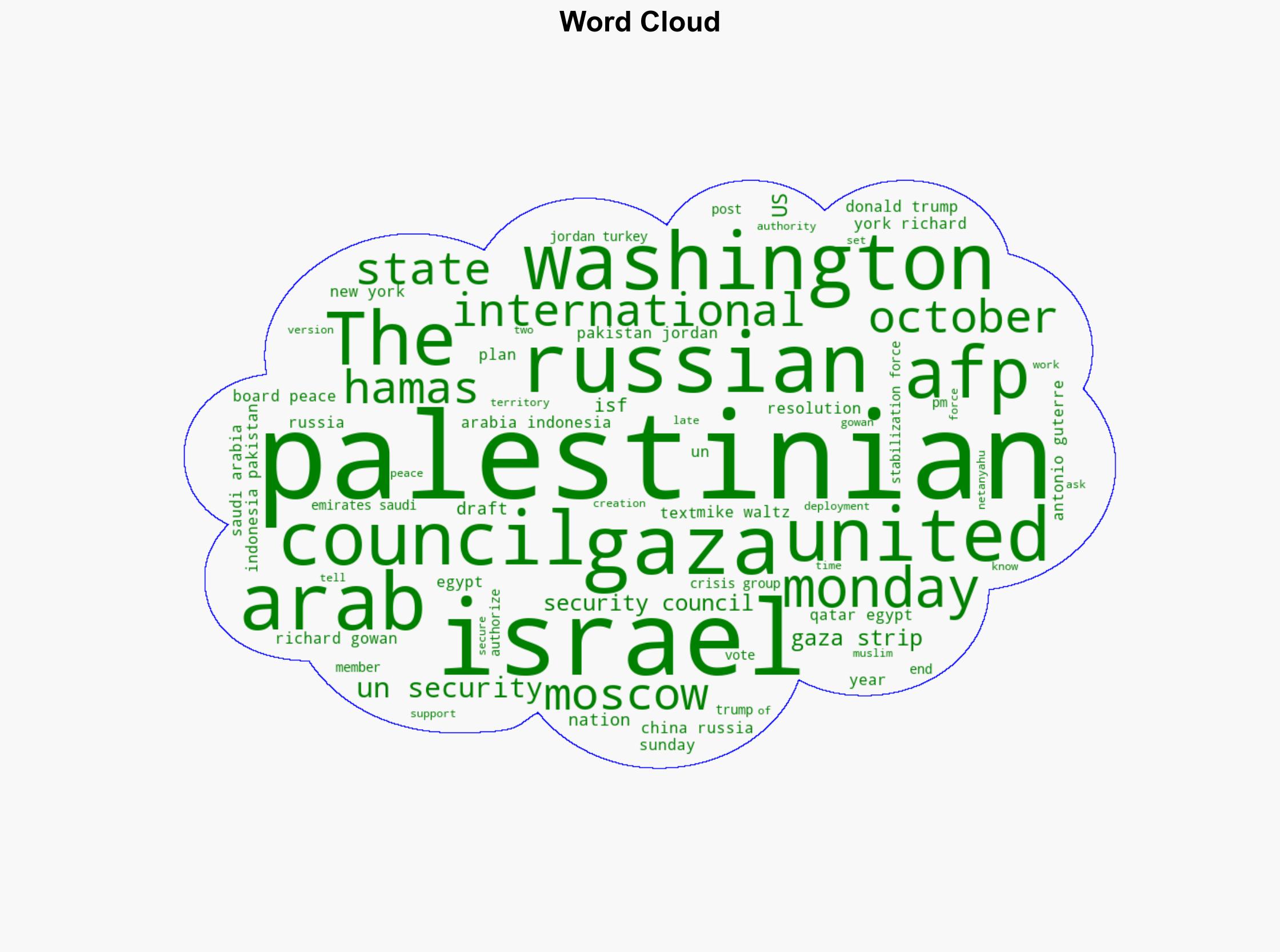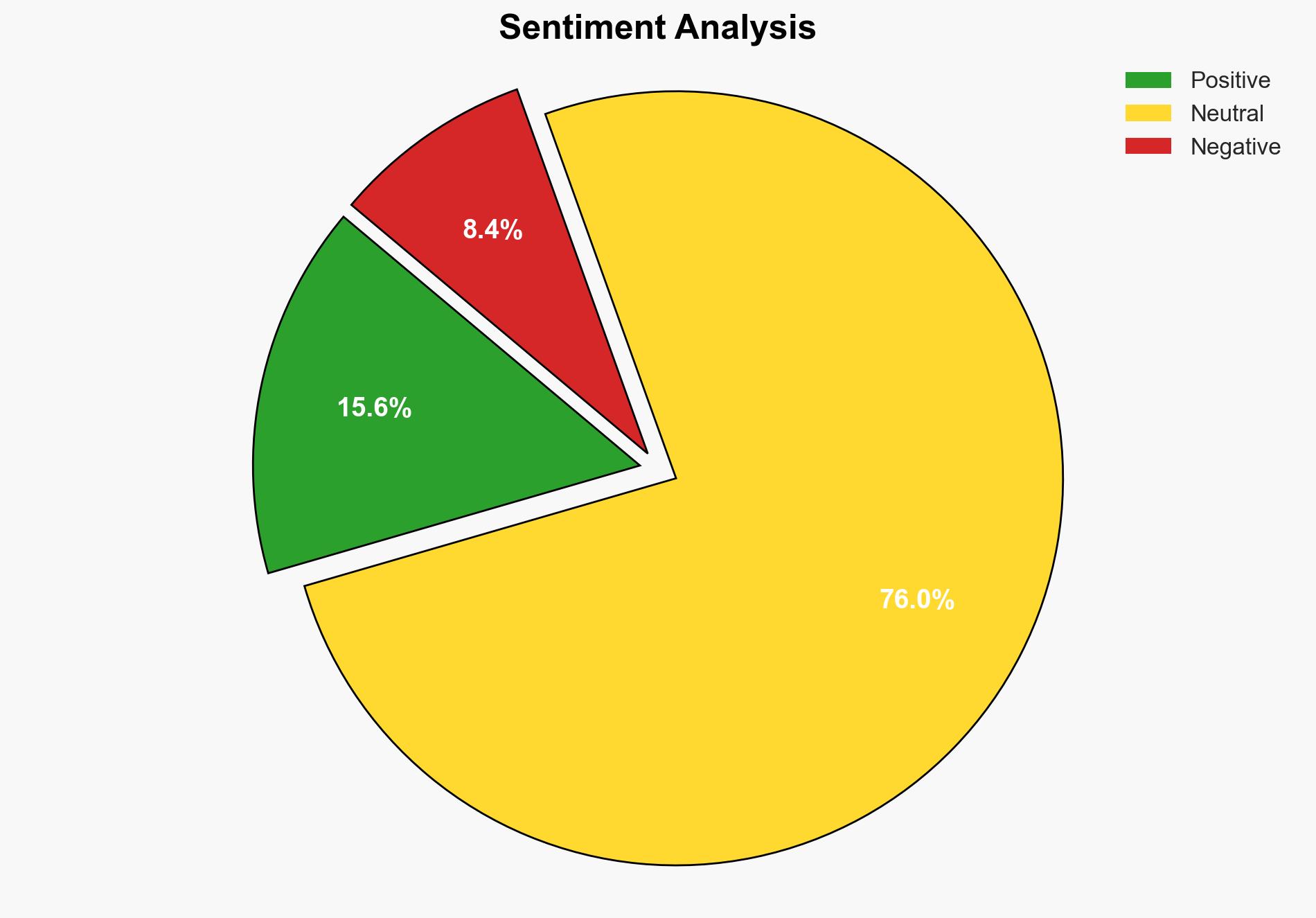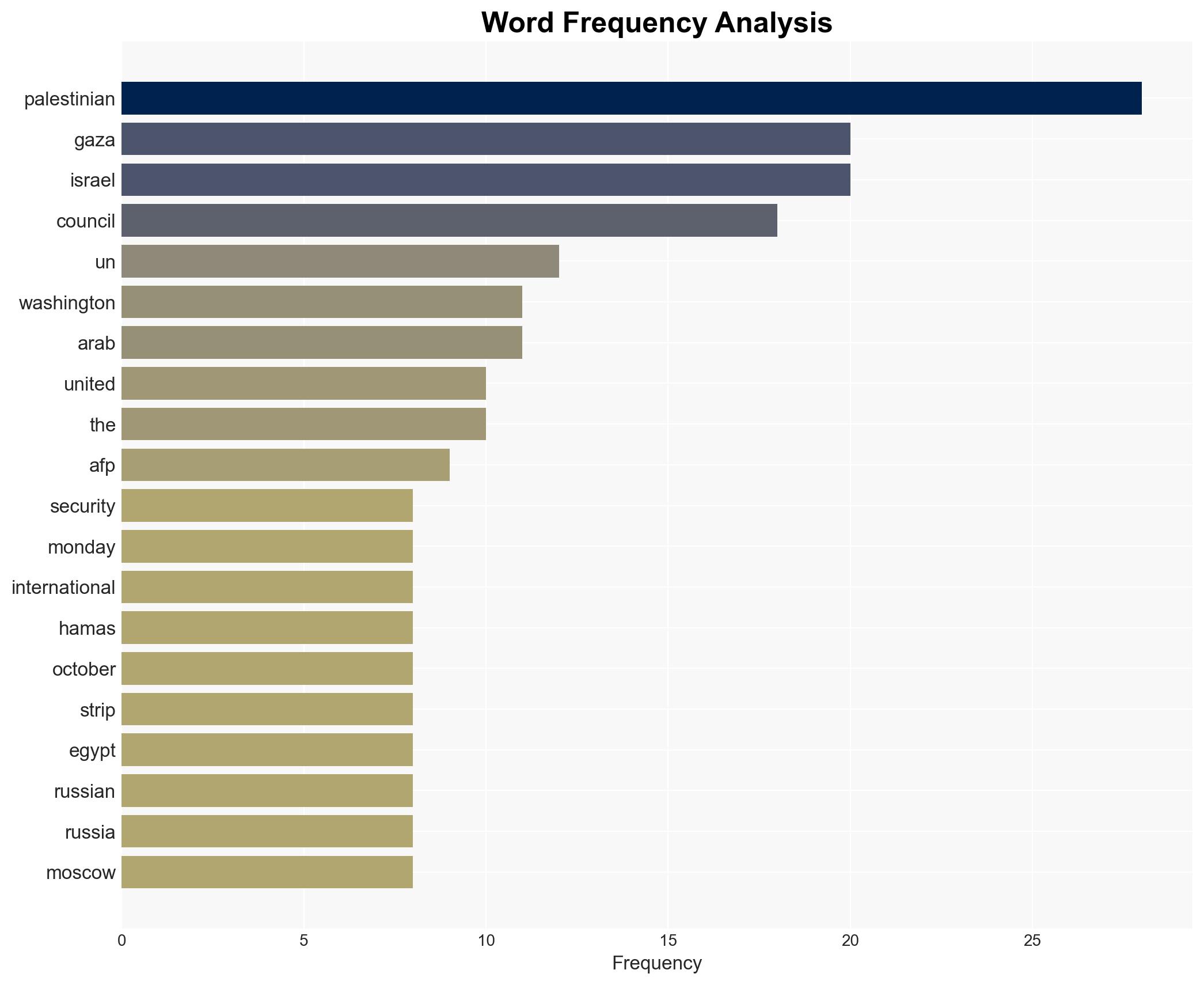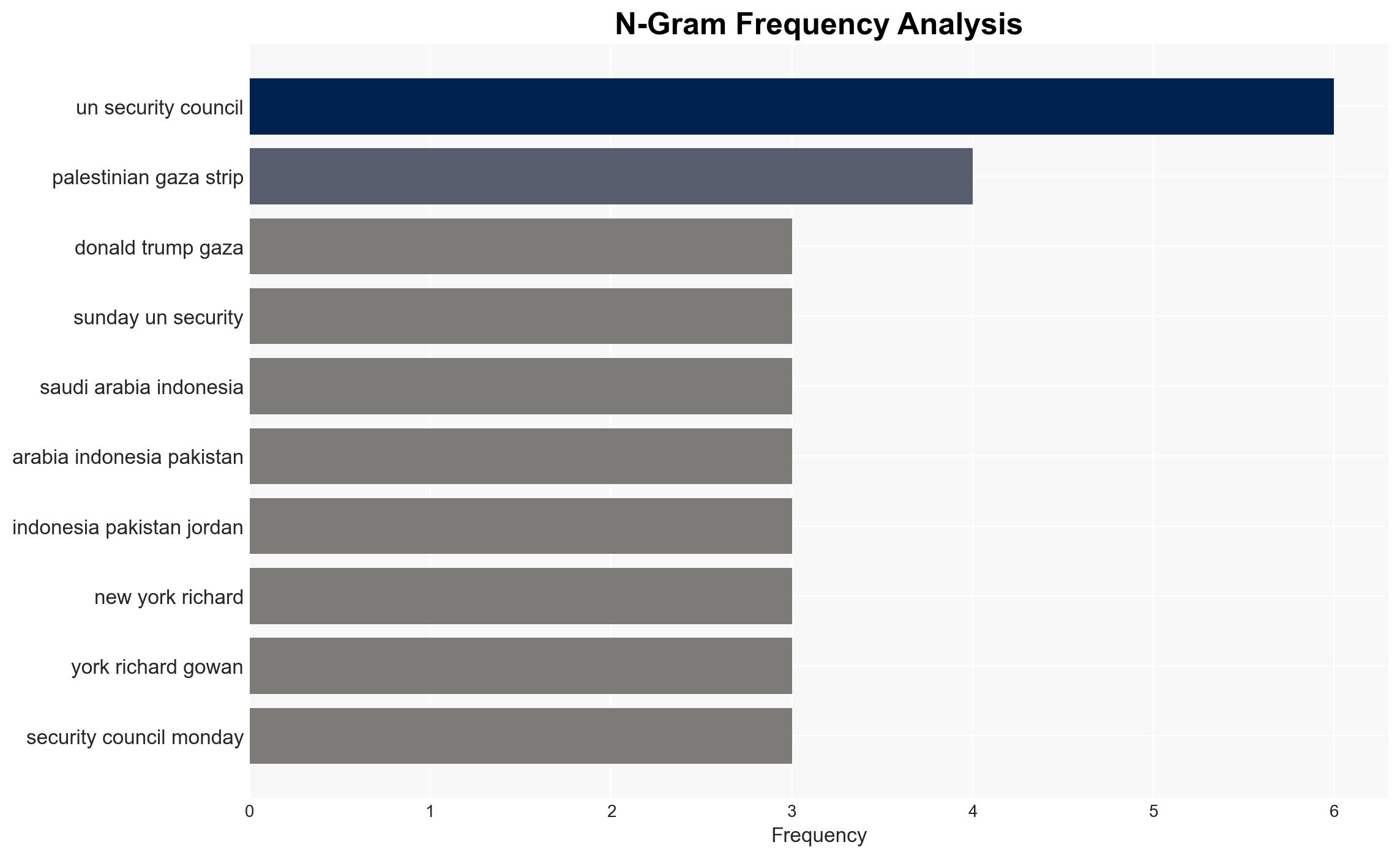UN Security Council set to vote on international force for Gaza – Digital Journal
Published on: 2025-11-17
AI-powered OSINT brief from verified open sources. Automated NLP signal extraction with human verification. See our Methodology and Why WorldWideWatchers.
Intelligence Report: UN Security Council Vote on International Force for Gaza
1. BLUF (Bottom Line Up Front)
The most supported hypothesis is that the UN Security Council will approve the deployment of an International Stabilization Force (ISF) in Gaza, despite Russian objections, due to broad support from Arab nations and strategic interests of key players like the US. Confidence Level: Moderate. Recommended action is to prepare for potential diplomatic fallout with Russia and to engage in dialogue with abstaining members to address their concerns.
2. Competing Hypotheses
Hypothesis 1: The UN Security Council will approve the US-drafted resolution for an ISF in Gaza, leading to a temporary stabilization of the region.
Hypothesis 2: The resolution will be vetoed by Russia, preventing the deployment of the ISF and leading to continued instability in Gaza.
Hypothesis 1 is more likely due to significant support from Arab nations and the strategic interest of the US in stabilizing the region. However, Russia’s potential veto remains a critical factor that could derail the resolution.
3. Key Assumptions and Red Flags
Assumptions: The assumption that Arab support will outweigh Russian objections; the belief that the ISF can effectively stabilize Gaza.
Red Flags: Russia’s historical use of veto power; potential for miscommunication or lack of consensus among Security Council members.
Deception Indicators: Possible misinformation campaigns by opposing parties to influence member states’ votes.
4. Implications and Strategic Risks
The approval of the resolution could lead to a temporary reduction in hostilities, but failure to address underlying issues might result in renewed conflict. A Russian veto could exacerbate tensions between the US and Russia and lead to diplomatic rifts within the UN. Additionally, failure to implement the ISF effectively could lead to a loss of credibility for the UN and further destabilization in the region.
5. Recommendations and Outlook
- Actionable Steps: Engage diplomatically with Russia to mitigate veto risk; ensure robust planning for ISF deployment to maximize effectiveness and credibility.
- Best Scenario: Successful deployment of ISF leads to stabilization and progress towards a two-state solution.
- Worst Scenario: Russian veto leads to increased hostilities and diplomatic fallout.
- Most-likely Scenario: Resolution passes with abstentions, leading to temporary stabilization but unresolved long-term issues.
6. Key Individuals and Entities
Donald Trump, Benjamin Netanyahu, Mike Waltz, Antonio Guterres, Richard Gowan.
7. Thematic Tags
Regional Focus, Middle East, UN Security Council, International Relations, Peacekeeping, Gaza Conflict
Structured Analytic Techniques Applied
- Causal Layered Analysis (CLA): Analyze events across surface happenings, systems, worldviews, and myths.
- Cross-Impact Simulation: Model ripple effects across neighboring states, conflicts, or economic dependencies.
- Scenario Generation: Explore divergent futures under varying assumptions to identify plausible paths.
Explore more:
Regional Focus Briefs ·
Daily Summary ·
Support us
·





